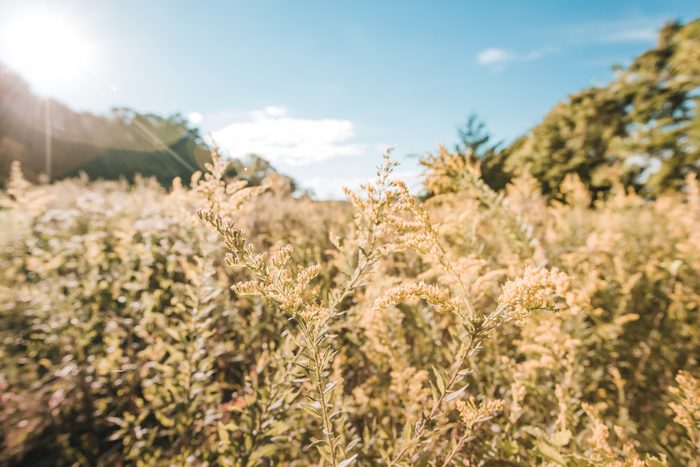
What causes fall allergies?
If you suffer from seasonal allergies, springtime’s blooming flowers and budding trees can create pollen dread. But reports suggest seasonal allergies are also increasing in fall, with many Americans experiencing seasonal allergic rhinitis…better known as hay fever. According to the Asthma and Allergy Foundation of America, around 19.2 million adults and 5.2 million children in the United States experienced seasonal allergic rhinitis in 2018—and many specialists say allergies have gotten even worse year over year.
Gary Soffer, MD, is a Yale Medicine allergist, integrative medicine specialist and assistant professor in the Department of Pediatric Pulmonology, Allergy, Immunology & Sleep Medicine. Dr. Soffer tells us: “Throughout the United States, fall time allergies are largely caused by pollen from weeds.” Dr. Soffer adds that “in certain areas like the Southeast, grass and tree pollen can also contribute to symptoms.”
The most common weed is ragweed, says Stacey Galowitz, DO, Pediatric & Adult Allergist at ENT & Allergy Associates’ Somerset, NJ office. Dr. Galowitz says ragweed grows in a lot of places across the country, but it’s especially prominent along the East coast and Midwest and is the most common trigger—releasing pollen from mid-August to early November. “Other weeds include cocklebur, lamb’s quarter, pigweed, mugwort, thistle and more,” she says, adding that outdoor molds, as well as dust mites (which appear when the house warms up), can also cause allergies to flare up.
There are the classic fall allergy remedies…but, if you’re looking to take on your allergies from all sides this fall, there are some natural fall allergy remedies that you can even combine with conventional medicine to manage hay fever. The Healthy @Reader’s Digest asked immunology and allergy experts for their favorites.
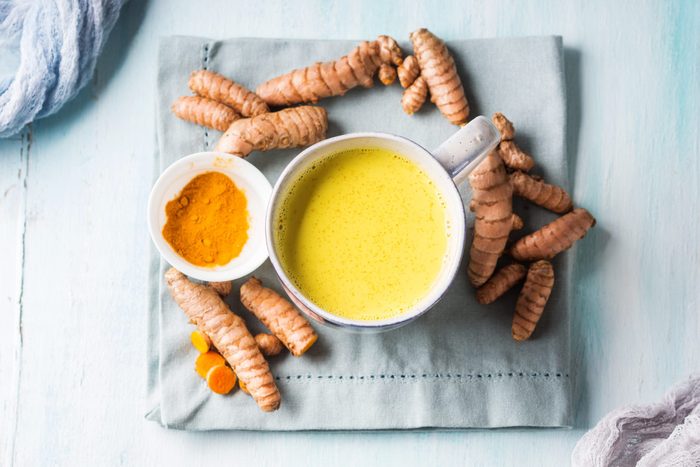
Eat more turmeric
Turmeric is a typical spice used in Indian, Middle Eastern, and South Asian dishes, such as curries, and contains properties that can aid with allergies. “Turmeric, or its active constituent curcumin, has been used for centuries as an anti-inflammatory and there is a good amount of evidence to support this,” says Dr. Soffer, noting that the plant itself is often more effective than a turmeric supplement: “This is a spice that I suggest people incorporate into their diet rather than taking it as a supplement since this is how it is traditionally used.”
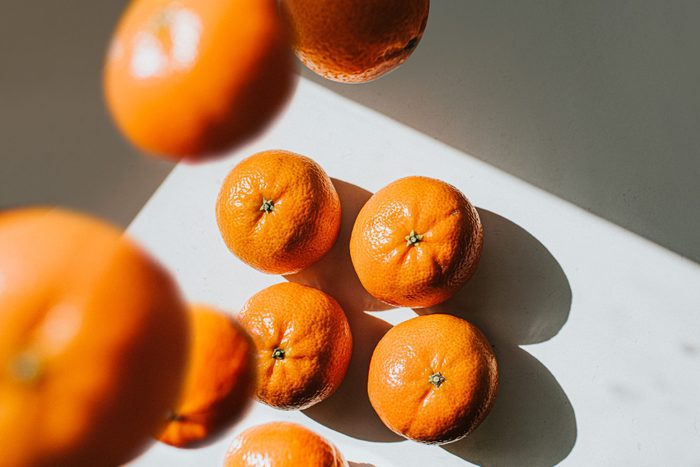
Try foods with quercetin
Consider eating foods that have quercetin, which is a flavonoid (or a type of plant pigment). An antioxidant, quercetin contains anti-inflammatory properties “that can help stabilize allergy cells and also act as an anti-inflammatory” to help with allergies, Dr. Soffer says.
Dr. Galowitz adds: “Quercetin is believed to stabilize the release of histamine and help control allergy symptoms. It’s naturally found in broccoli, cauliflower, green tea and citrus fruits.”
Shop the 5 Best Cauliflower Pizza Crusts Registered Dietitians Recommend
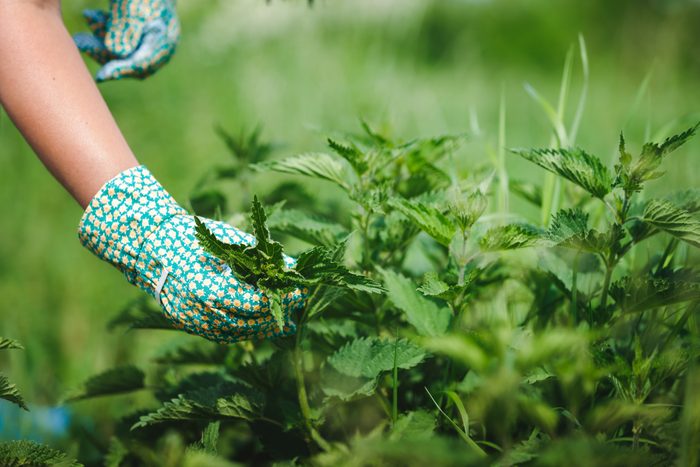
Stinging nettle
Stinging nettle, Urtica dioica, is a plant used for many different ailments. “Stinging nettle is suggested as a natural antihistamine to help with allergy treatment,” Dr. Galowitz says.
Dr. Soffer adds that stinging nettle also contains quercetin. Although more research is needed, Soffer says, “Stinging nettle, specifically the freeze-dried preparation, has some preliminary evidence for treating environmental allergies.”
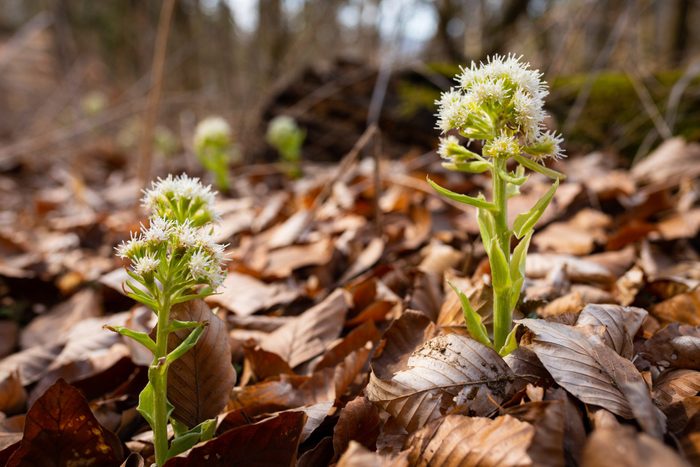
Butterbur
Butterbur, Petasites hybridus, is a plant used to treat different issues, including hay fever. Dr. Soffer says, “Butterbur has been studied in the treatment of environmental allergies; and while it is too early to say anything definitively, the research is promising.”
“Butterbur contains petasins, which can alter some allergic pathways in similar ways to some prescription allergy medications.”
If you’re curious to try butterbur as one of the natural remedies for all allergies, Dr. Soffer advises: “Seek out products that are free of pyrrolizidine alkaloids, as they can cause liver damage.”

Opt for nasal irrigation
Using a saline solution to flush your nasal passages can offer relief for congested, stuffy noses. “Nasal irrigation is very helpful to flush allergens from your nose and sinuses to relieve nasal congestion and post-nasal drip,” Dr. Galowitz. You can opt for a nasal saline solution, or use a Neti-Pot. This combines sea salt with filtered, lukewarm water to clear your nasal passages.
Dr. Soffer is a fan of the latter. “The Neti-Pot is a great natural remedy for allergies,” he says. “It has been shown in a number of studies to be quite helpful for congestion.” One key: he recommends the use of filtered water to help avoid infections. Also read: 14 Health Effects of Mold, from an Air Quality Scientist

Consider an allergy shot
Although it might not seem natural, Dr. Soffer says an allergy shot is, in fact, a natural method for treating allergies. “They use very small amounts of the things you’re allergic to, like pollen, in order to help retrain the immune system so that you no longer have a bad response,” he says.

Reduce exposure
Dr. Galowitz points out that sometimes the best natural remedy for fall allergies is to avoid exposure. “Limiting exposure to your allergens—both outside and inside—helps limit your reactions and hence your symptoms,” she says.
If you thought staying inside was your way of reducing exposure, there are additional tips you can implement. Dr. Soffer recommends “nightly showers with special attention to washing their hair, keeping the windows closed in the home and never getting into bed with outside clothing.” Simply keeping long hair tied up outdoors may also make a difference.

The best antihistamine
If you’re wondering what the strongest antihistamine is, you may be surprised by the answer. Says Dr. Soffer: “The best natural anti-allergy approach is to maintain overall good health through diet, exercise and mind-body practices.”
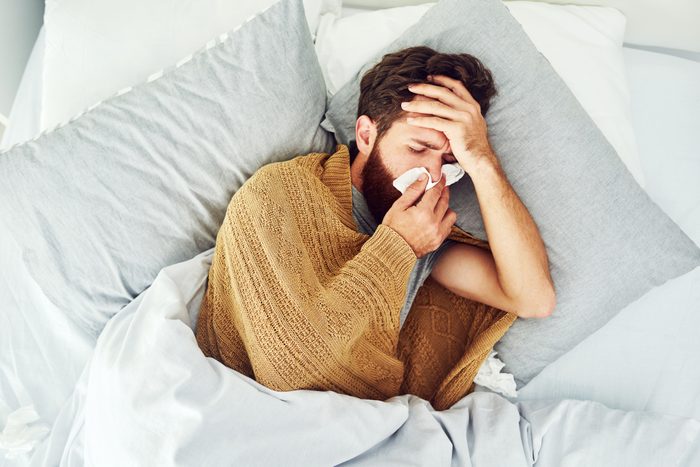
Natural remedies for fall allergies may not be a cure-all
These natural remedies for fall allergies can be one way of working to reduce allergy symptoms. Dr. Galowitz says, “These natural remedies are a great starting point for patients dealing with allergies—but they are not necessarily to be used as monotherapy.” Instead, she says, they can be combined with over the counter and prescription medications.
Dr. Soffer adds an important point: “It is also important to know that if you do need a more conventional approach, the current recommendations are to start with a nasal steroid spray and not an antihistamine.”
However, if you’re experiencing severe symptoms (or if you have other questions about symptoms this time of year), it’s important to go to the doctor. “[These tips] are not a substitute for medical care during a severe reaction,” says Dr. Galowitz.
For more wellness updates, follow The Healthy on Facebook, Instagram, and Twitter. Keep reading:
